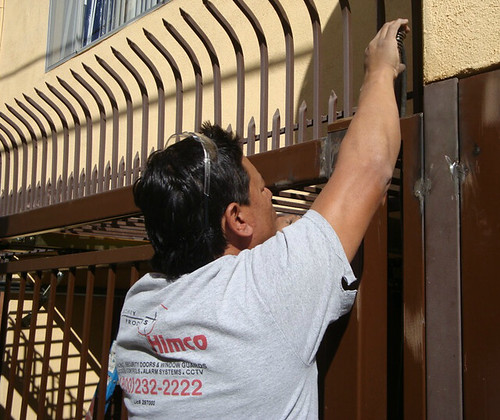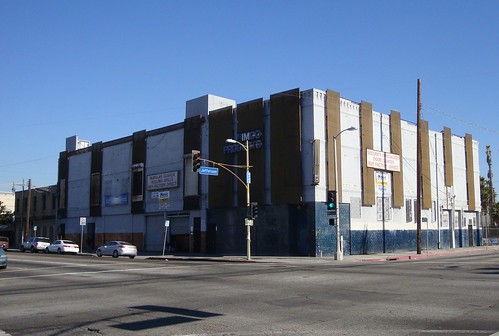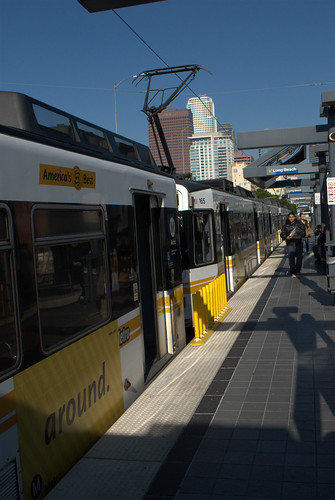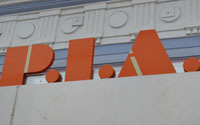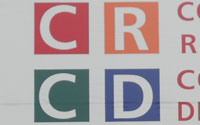Telling a story about what it is like moving around in South Los Angeles.
This area is showing definite promise with regards to street art and muralism, but also shown by the many screen printing and design stores popping up, other forms of art are also being explored. More than anything, this area is demonstrating a real dedication to arts education, not only in schools, but also through other venues like the Papillion Institute of Art and the St. Francis Center.
The Coalition for Responsible Community Development is a neighborhood-based community development corporation that operates in our region. Part of their housing program includes developing permanent supportive housing for low-income youths ages 16-24. What really stands about CRCD is their commitment to helping out some of the most at risk young adults, those coming out of the foster care system.
By Paresh Dave
Himco Security's products have stood up against all but a handful of burglars during the past four decades, but they could not stop the recession from robbing the business.
The giant South L.A. manufacturer and installer of everything from window bars to fences to gate motors has seen business dip nearly 65 percent during the past four years as customers have less to spend on extras like security products. The company has shriveled from 65 employees to just 18.
“I think we're at least pretty close to the bottom because we're running the same as last year right now,” owner Jeffrey Marks said recently during an interview in his simple office, nestled between the small business office and the vast production floor.
The company's reach, stretching from the beaches to the mountains from I-210 freeway to northern Orange County, is impressive. Marks says it's nearly impossible to wander down any street in that region without finding at least one home guarded by a Himco product.
Yet, Marks said he “can count on one hand how many times one of our products has been breached.”
His father started the business in 1968 with a $500 loan from a relative. The elder Marks went door-to-door selling window bars, slowing building the business into a Southern California leader.
Though he hadn't planned to, the younger Marks took over the business in 1985, about four years after his dad asked him to come on board.
The years since have been marked adaptations to outside forces. First there was Home Depot, then China and now the Great Recession.
The hit's been large enough for Marks to slim Himco's footprint in its massive 40,000-square-foot factory at Main Street and Jefferson Boulevard to just 8,000 square feet. The rest of the space has been leased out to textile companies, mainly sewing contractors, that have returned to L.A. during the past three years.
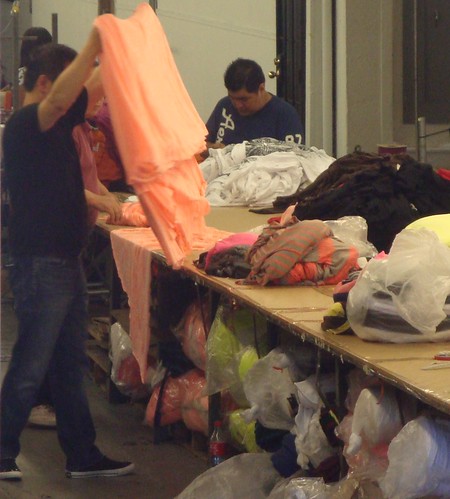
The renaissance in fashion manufacturing has been fueled by, surprisingly, the high costs retailers face in doing business with China.
But security products don't evolve as fast as fashion, so companies selling window bars, for example, made cheaply in China end up with larger profit margins than companies like Himco that spend much more to mold the bars themselves. Rising labor costs in China are one of the few things that could bring back the attractiveness of manufacturing security products here in L.A.
Himco grew to dominance by standardizing and automating much of its manufacturing process, Marks said. For example, he developed a machine that would twist four metal rods simultaneously while most in the industry where still twisting one rod at a time. Innovation is so fast now that it's hard to keep an edge.
Painting takes five minutes instead of 15 minutes with electrostatic guns that manage to paint every side of a rod at once without missing a spot. However, any company willing to make the investment can quickly use the same time-saver.
After Home Depot took off in the 1990s, Marks introduced new fencing and gating product lines. But expansion is out of the question at this point.
Marks said there remains too much uncertainty to take on desires such as adding three to five employees or opening locations in Las Vegas or Phoenix.
“We don't want to get too much bigger unless we have some stability,” he said.
Revenues have sunk to the $1 million to $5 million range (Marks, the company's sole shareholder, would not disclose exact details). The advertising push has continued though, with nearly 1 million Himco fliers streaming out each month in advertising bundles found in the Los Angeles Times and in the mail. This year, Marks has also made a push to increase the company's web presence, including on social media.
Marks said the number of competitors has continue to rise, though the owner of one company similar to Himco said his business has been holding steady.
“When the economy is down, crime goes up,” said Avi Ben David of Mulholland Security Centers. In fact, crime hasn't gone up in Los Angeles despite the financial crunch. In response, he added, “The statistics might say one thing, but that's not we are seeing.”
Mulholland takes on about 50 projects each week, Ben David said. The company has added one employee during the recession, leaving it with a staff about 30. Like Marks, he said he's ready to expand as soon as business goes from steady to booming.
The security products industry in general has gone high-tech. While wrought-iron and metal products remain mainstays for basic construction projects, an industry observer said all of the real money is in higher-end products such as Internet-based camera systems. Sales of video surveillance equipment jumped 10 percent in 2010 despite the global economic downturn, according to IMS Research.
“Nineteen guys got on airplanes and were successful in carrying out a terrorist mission and in doing so, people were forced to take security seriously,” said Ralph Jensen, editor-in-chief of a magazine that covers the high-tech security products industry.
As the economy picks up, Marks said he hopes people will go back to buying items that he calls “wants,” such as fences and gates. Marks considers other products such as security doors, locks and window guards to be “needs” because when it comes down to bare-bones safety measures, they are things people and companies are willing to break the piggybank for.
The “needs” only account for 35 percent of the business. So when people are buying less “wants,” the picture obivously becomes grim.
“It's nice selling a product people need,” Marks said. “But it's also nice selling a product people want.”

